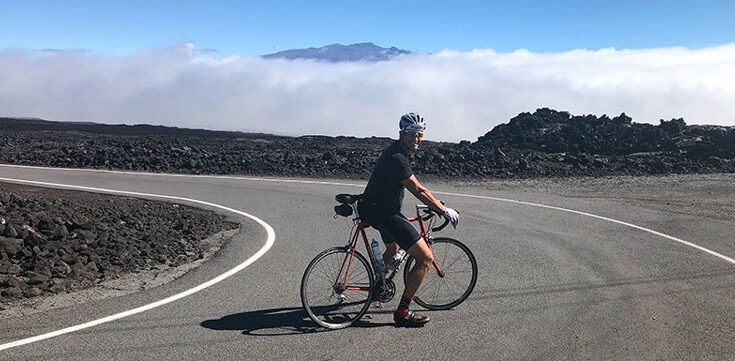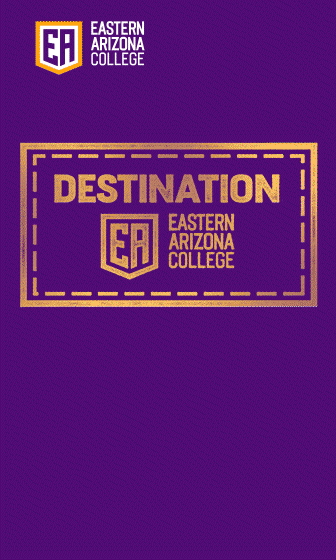Photo Courtesy Stephen Quinonez: Stephen Quinonez, who began Intuitive Development’s curriculum eight years ago, said the program helped guide him through important decisions in his life.
By Trevor Booth/Cronkite News
PHOENIX – Gigi Soltero felt the world crashing down on her, and there was nothing she could do about it.
When former President Donald Trump declared COVID-19 a national emergency on March 13, 2020, Soltero was soon thrust toward the frontlines as a licensed practical nurse. She already was battling her own issues with heavy drinking and recovery from an abusive relationship, adding to her stress.
Looking for direction in a time of confusion, Soltero began searching for a personal trainer, something she hoped would improve her mental state. She did not want her struggles to consume her.
“I thought with some of that, I should really focus on myself,” she said.
Soltero has not been alone in her search for mental liberation during the pandemic. About four in 10 adults in the United States reported symptoms of anxiety or depressive disorder in January 2021, according to KFF, up from one in 10 who noted such symptoms from January to June 2019.
The circumstances have greatly affected adolescents, too. Researchers in a study of 977 people found in March 2021 that 46% of parents raising teens said their child had shown signs of a new or worsening mental health condition since the start of the pandemic, reports HealthDay.
Social isolation, job insecurity, and unique stresses have left Soltero and others struggling. Yet in the darkness, some have found light, and relief has come in a variety of forms, ranging from physical training to spiritual guidance to personal development.
“I think it takes a little bit of doing something every day,” Soltero said. “It can be really hard because if you’re going through a lot of depression or maybe even a bad relationship, it takes so much of your energy.
“(But) afterwards, you might feel really good.”
Personal development route
In 1996, Lynn M. Bunch founded Intuitive Development, an education program motivated to guiding people toward their authentic selves through the discovery of their intuition, or “inner wisdom.”
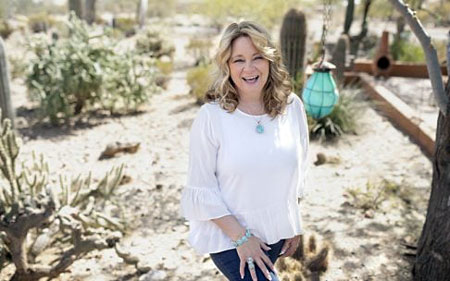
The idea caught the attention of Sherry Butler, who began the curriculum in 2018. Butler first connected with Intuitive Development through a client at her communications company in Scottsdale and was humbled by what she learned about herself.
“Once I started doing the work it was like, ‘Wow,’” Butler said. The biggest flip for me, I have been single my whole entire life. I don’t do well with relationships and that comes from a lot of fear and having trust issues.
“It’s been a long road to get through that piece where I have more trust with people. And that was a decision I had to make on my own, nobody could help me on that.”
Bunch understands that, and felt inspired to launch her program while navigating challenges in her marriage, one of several topics she has helped her clients work through since.
“I was in some difficult situations for myself, and I was starting my own family and I just knew that I had let go of myself and I had created a different way of being that wasn’t true to me,” Bunch said. “And I when I say that, (it’s) when you start getting off-course, your own course that you know instinctively isn’t you.
“That’s what started happening for me, and so I was like, ‘Hold on a second. I know to go to this part of me.’ And then I started making the right decisions for myself.”
Over the last 25 years, Bunch has worked with clients in private sessions and workshop-based settings. The basis of her guidance is from Intuitive Development’s 10-course curriculum, all of which is now online.
The classes – which cover emotional patterns, human roles, and life purpose, among other topics – culminate in the creation of one’s blueprint, which documents behavioral patterns and mental blocks in relation to career, health, finance, relationships, time, and wisdom.
Since starting with Intuitive Development, Butler has built important relationships with her collaborators and partners – who keep each other accountable in their respective lives – in the program. Her internal focus during the pandemic led to her baptism on Feb. 21, something she said has healed certain wounds in her life.
With COVID-19 related restrictions beginning to dissipate, Butler said her goal is to now seek marriage, which she is more confident to pursue than before.
“That is the big one for me,” Butler said. “And for me to trust at that level that that person’s not going to hurt me, that I’m not going to fail at it, that I’m not going to push that person away, that I’m going to be able to grow and learn through that other person because they’re going to come to the table will all of their experiences.
“You got to let people in your life because that’s the only way you’re going to grow in life, you know what I mean?”
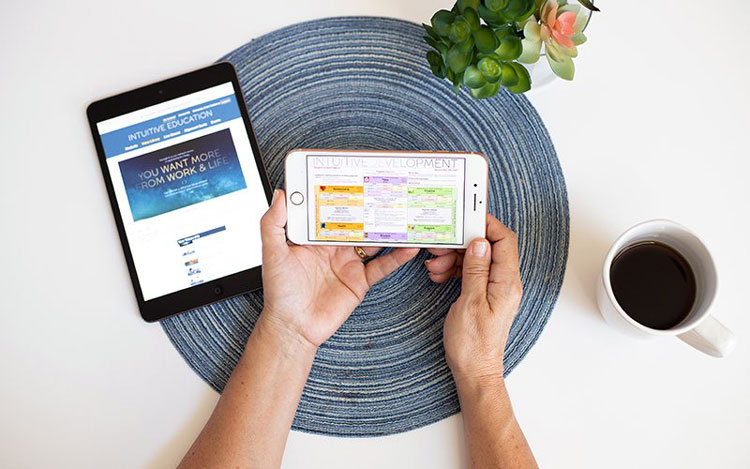
Butler’s vulnerability has changed her life, though that is difficult for everyone to do, especially men. According to Mission Harbor Behavioral Health, men are more likely to channel feelings of sadness and grief into emotions that are viewed as more socially acceptable in order to protect images of strength and stoicism.
That challenge existed for Stephen Quinonez, who began Intuitive Development’s curriculum eight years ago and started interacting with it again in the last nine months. While residing in Hawaii in a relationship he was not pleased with, Quinonez felt he was not living as his authentic self.
“I shared my light so much because that’s what was attracting other people to me or my family or whatever it was, but it drained me,” Quinonez said. “I let it go out.”
Seeking to “reclaim my light,” Quinonez moved back to his home state of Arizona in January while ending his previous relationship. He has since developed a new purpose that he is extremely passionate about.
“One of my biggest dreams would be to get this information as a platform out there to start the conversation,” Quinonez said. “But I would love to be in a format like I love speaking and telling the stories of things we’ve experienced or people have shared with us that we can share. But I would love to travel around the world and just bring men together and build that family unit.”
The church factor
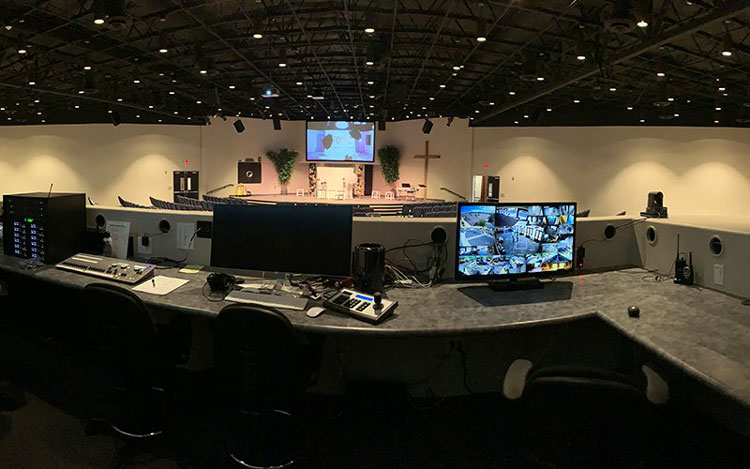
On March 16, 2020, the Arizona Department of Health Services recommended limiting public gatherings of 10 or more people, as positive COVID-19 cases rose in the state. It forced Tim Klontz, the senior pastor at Family Bible Church in Chandler, Arizona, and his eight elders to make a difficult decision about their congregation.
After an extensive conversation, Klontz’s elders agreed to postpone in-person worship services beginning the week of March 18, and for the next three months, Klontz and his family conducted services that were broadcasted via live stream. It was a difficult adjustment, as Klontz said their Sunday services had grown to an average of 350 to 400 attendees before the pandemic.
In June, Klontz said his church reopened for in-person services with masks and social distancing required. However, it closed again in late June in accordance with Arizona Gov. Doug Ducey’s executive order to prohibit organized events of over 50 people. It then reopened during the week of Aug. 2.
While Klontz’s church lost some of its audience, it also attracted some new faces. Justin Large began attending Family Bible Church during the first week of August and has remained a regular attendee.
Citing frustrations with how the pandemic affected society, Large hoped to find a church that opened as quickly as possible and stayed focused on the word of the Bible. He has been impressed with what he found.
“The Sunday schools and the extra Bible study sessions, they’re great,” Large said. “I’ve read the Bible all the way through, I did this Bible in a day thing and I’ve been doing that for a few years. But there’s definitely things I miss, and Tim and those elders too, those elders teach each class and they know just a lot about commentary on the Bible and what this passage really means and stuff like that.”
Without his new community, Large said the pandemic would have been much more difficult to navigate on his own.
“There were times I was not handling it the best, I was frustrated and I would let that anger sort of make me not be as good of a person as I was,” Large said. “But I left that up to God.”
So did Klontz, who was determined to make the transition smooth.
“When they told me, ‘Hey, we’re going to have to do stuff differently,’ I’m going, ‘I’m never going to do stuff different,’” Klontz said. “I’ve always preached, we’ve always had church. I’ve been in church through everything.
“I was still home, my wife had surgery so I was home with her so I could still talk to them on the phone and see the news. But this was all kind of happening right at that time and I said, ‘OK.’”

Through the changes, Klontz said he has tried to keep a consistent perspective.
“I’ve heard some people say, ‘Fight the government, don’t let the government tell you anything,’” Klontz said. “But my perspective is to listen to what the Bible says. I listen to what God says. And God says, ‘Be submissive to the governing authorities.’ God has established governments for a purpose.’”
Since Family Bible Church has returned to in-person services, a similar belief has fueled its guidelines.
“I just kept teaching people, ‘Respect each other,’” Klontz said. “If you got somebody that wants to wear a mask, then don’t just go and breathe in their face. Be kind to people. If someone feels like they don’t want to hug you, well then don’t hug them. If they don’t feel like they want to shake your hand, then offer your elbow or give them your first.
“Be kind and friendly to each other. We really emphasize respect for each other, respect for authority, love for people.”
Klontz said Family Bible Church had close to 300 attendees for its Easter service on Sunday, April 4. The church tore down walls inside its main worship center in September to allow more space for social distancing and has its services available for live stream on Facebook, Vimeo, and YouTube.
It has been challenging for Klontz and other churches to encourage their attendees. But their work and philosophy have paid dividends for people like Large, who felt much more confident in how he has approached the pandemic.
“Having God, it’s very critical in a time like this,” Large said. “This is a tough time, and especially if you’re isolated. I at least had my family, but if you don’t have anybody, you can always say you have God.”
The fitness option
Soltero’s search for a personal trainer culminated in Groupon, where she saw an advertisement for Quan Trieu, the owner and operator of Quantum Physiques in Gilbert, in May 2020.
Trieu has worked in personal fitness over the last four years since graduating from Arizona State University with a Bachelor of Arts in exercise science in 2017. But the last two years have been very different.
Since March of 2020, Trieu has had to balance the challenges of training his clients with gyms twice shutting down last summer. It led him to build an online approach, in which he has video calls with his clients and guides them through meal plans and training sessions.
“The crazy thing is that some of the clients that have been doing online have been making very good results,” Trieu said. “Like I was honestly surprised, I didn’t think that.
“I was able to learn how to get better as it kind of felt like I was a therapist of sorts, to try to help them through their emotional trouble of fitness and health versus, ‘Hey, this is how you do deadlifts. Hey, this is how you do a squat.’ I think it’s different, but it’s still really good.”
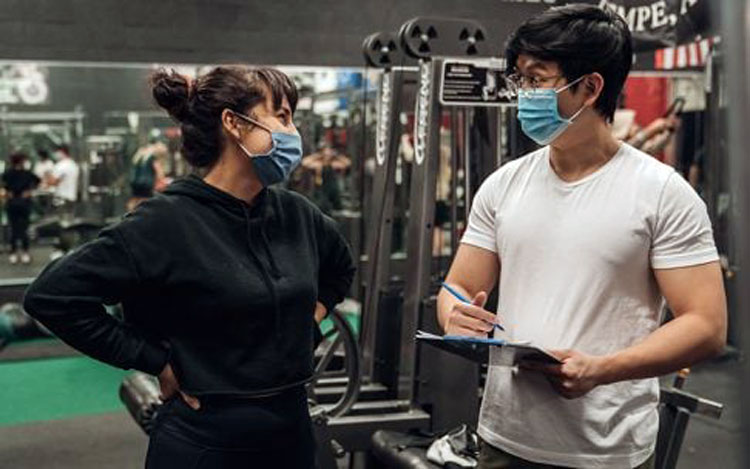
During the first four months she worked with Trieu, Soltero brought two sets of dumbbells for her exercises and also performed bodyweight training. She now meets with him once a week at Los Campeones Gym in Tempe and does muay Thai training when she is not weightlifting.
Soltero started with a goal of losing 10 to 20 pounds but has noticed her benefits grow much more than that.
“The more I kept talking to Quan, the more it became about what I’m capable of doing, not just what my appearance is,” Soltero said. “Because when your body feels good, you feel good.
“Knowing that I can do something for a year without stopping has helped me get sober. And I’ve been sober six months tomorrow (April 24). So it’s like, it just makes me feel like I’m actually capable of doing something and that my body or how I feel about myself doesn’t have to get carried away into a spiral of depression.”
Even though Trieu initially lost more than 10 clients throughout the pandemic, Soltero’s story has served as a motivation for him. He is now back up to 15 clients and is conducting sessions both in-person and online to meet their needs.
Once locked in a state of uncertainty, Soltero is more confident she can accomplish anything she puts her mind to. She encourages others to think and challenge themselves the same way.
“Now that I’m starting to feel really good about myself, I just feel really good overall about how I look,” she said. “So it’s not necessarily that I have certain goals about what my body should look like or anything. Now, it’s more focused on keeping this level of activity so I can keep feeling good. And I have a lot more energy, I have energy all day.”
The benefits
The pandemic has presented unique challenges for adults in the United States, but they have found ways to build positive habits.
Like Intuitive Development’s blueprint system, people have learned about themselves in ways they otherwise may have not had time for. Fifty percent of 1,000 respondents in a survey reported learning about a new topic during the pandemic, according to an article by College Finance. Over 40 percent of them said they expanded on existing hobby abilities, learned a new hobby, or expounded on existing topical knowledge of a subject.
That could benefit several areas of their lives, including their careers. The same website found that 90 percent of 200 hiring managers would be more likely to hire someone who worked on professional development during the quarantine period of the pandemic.
Religion and faith have also been crucial, especially in the United States. Pew Research Center found that approximately three in 10 adults said the pandemic has strengthened their religious faith, and four in 10 said faith has tightened their family bonds, even with potential separation from extended family.
And fitness has been instrumental to combat stress and anxiety. Along with improved cognitive function and physical shape, Jennifer Gay – an associate professor at the University of Georgia’s College of Public Health – noted it could increase blood flow and immune cell movement, aiding multiple areas of one’s health during the pandemic.
Those resources are just a few of many that have guided people in times of distress. Without them, things could have been very different.
“What I learned is that being able to adapt to change, kind of with your schedule and how things are done is really important, especially in any field,” Trieu said. “It’s good to adapt so the ship that you’re piloting doesn’t completely sink when something traumatic happens.”



